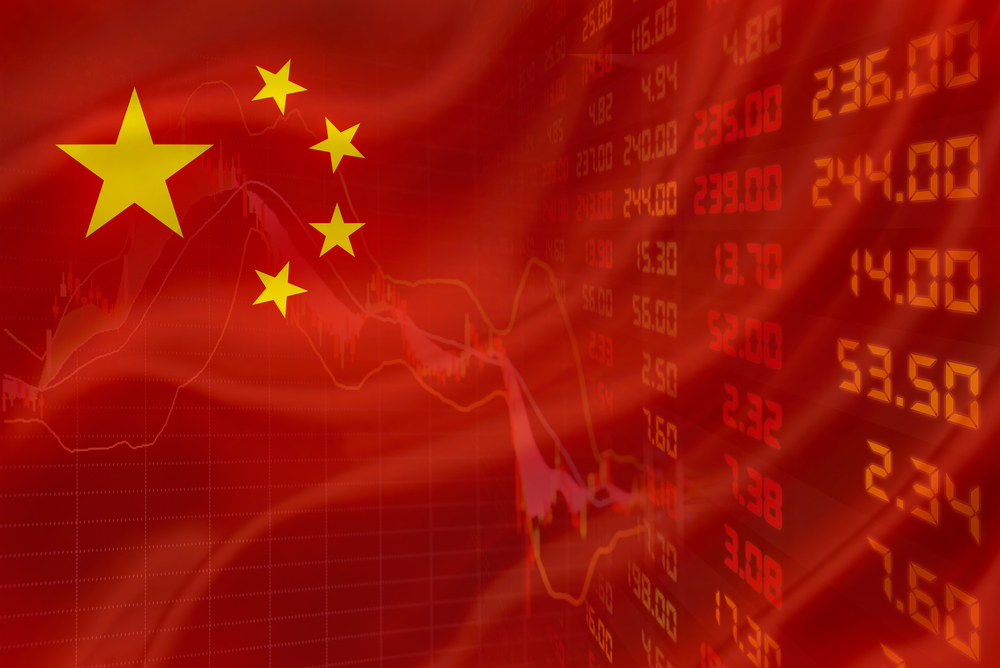Wed Nov 30, 2022
Covid-19 Protests Grow in China: How Will International Markets Be Affected?
In recent days, news flows about the coronavirus in China have caused great repercussions in international markets. The coronavirus, which emerged in Wuhan, China in late 2019 and caused a pandemic, quickly affected the whole world. The closure measures implemented against this caused many negative factors that affected even the social life, especially the economy.
Since the outbreak of Covid-19, many attempts have been made to control the pandemic. Especially after the vaccination and quarantine measures applied, the return to normal life could start in about 2022.
However, harsh measures in China have continued since the outbreak of the pandemic. While the Chinese government has been continuing the 'zero Covid' practice for about 3 years, it does not hesitate to expand the closure measures if necessary.
One Step Behind: Zero Covid policy is an application that aims to suppress coronavirus cases where they occur and to cut the chain of transmission. In the implementation in question, strict and large-scale measures are taken such as travel restrictions, mass testing, restriction of the activities of businesses in the manufacturing, trade and services sector.
The number of coronavirus cases in the country has recently started to climb again. So much so that, in the statement made by the National Health Commission of China, more than 55 000 record cases were announced in mainland China on November 23. Yesterday, 39 047 cases were announced. The 7-day average is close to 30 000.
The number of cases continues to rise rapidly in the capital, Beijing, which is one of the cities struggling with the Covid-19 epidemic the most. In Beijing, the number of daily cases, which increased by 66 percent compared to the previous day, was reported as 4 307 in the last 24 hours.
In order to control the cases in question, the government expanded the restraint measures in many important cities, including the capital Beijing. Sites and workplaces in many cities were quarantined. While restaurants in many districts, especially in Chaoyang, switched to takeaway; shopping malls and gyms were closed.
As a matter of fact, chaos started in the country after 10 people lost their lives in the fire that broke out in an apartment allegedly under quarantine in Urumqi, the center of China's Xinjiang Uyghur Autonomous Region, last Thursday.
The stance of the government and state media on the fire was criticized in the protests that spread across the country. While voices about civil rights and freedom of expression were raised in the protests, the slogans of "we do not want quarantine" and "we want freedom" were chanted, holding up blank white papers that had become the symbol of the protests.
One Step Behind: The use of blank paper is based on the 2020 Hong Kong actions. During the period in question, activists opposed to Hong Kong's new national security laws had joined with blank papers in their hands after slogans related to the mass protest movement were banned. In the protests, the demonstrators made statements that "the messages they wanted to be given were given" despite the blank papers.
As the fifth day of the protests approaches, the criticisms against the government are rising. A large part of the demonstrators show their reactions with the cries of “Xi Jinping resign” at the protests in question. At the same time, “Communist Party, Leave the Power! slogans are heard. While the police intervened in most of the protests in question, some demonstrators were detained.
Some prominent sources on the subject consider such protests, which are rare in China, where state control over society is intense, as an expression of the public's growing discontent with the government's Covid-19 policy and strict epidemic control measures.
While it is not clear how far these protests will go, it has been announced that representatives from the National Health Commission of China and the National Center for Disease Control and Prevention will hold a briefing today.
In the briefing, where the implementation of coronavirus prevention and control measures will be discussed, some sources close to the subject state that a decision may be taken to relax the measures or end the zero Covid policy.
On the global markets, the effects of the events in China, the world's second largest economy, are being watched. Investor risk sentiment and the energy market are under pressure due to the possibility of the public authority to further expand measures against high covid cases and fears that protests against it will damage supply chains. Brent crude fell to pre-war levels at $80.80 yesterday. At this point, it is possible to say that the demand for safe harbor has also increased. As a matter of fact, ounce gold is settled above the 1750 level.
We will closely monitor the development of the protests in the shadow of the epidemic measures in the country. The meeting of China's National Health Commission today is extremely critical. The government's return from the zero Covid policy with a moderate stance could improve the investor risk atmosphere again. Otherwise, if the public authority maintains its harsh stance and creates a basis for further protests, it may particularly hit the stock market at this point.
